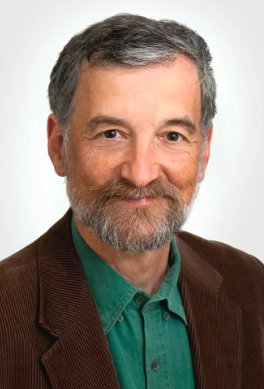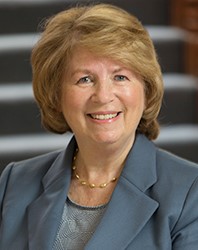K12 Advisory Committee
The K12 Advisory Committee includes three senior faculty members who will track the progress and development of participating K12 scholars.
Jill Goldstein, PhD, MPH
 Professor of Psychiatry and Medicine, Harvard Medical School; Founder and Executive Director of the Innovation Center on Sex Differences in Medicine (ICON), Massachusetts General Hospital; Helen T. Moerschner Endowed MGH Research Institute Chair in Women’s Health
Professor of Psychiatry and Medicine, Harvard Medical School; Founder and Executive Director of the Innovation Center on Sex Differences in Medicine (ICON), Massachusetts General Hospital; Helen T. Moerschner Endowed MGH Research Institute Chair in Women’s Health
jmgoldstein@mgh.harvard.edu
617-724-3776
For ~30 years, Dr. Goldstein has been investigating sex differences in the brain and disorders of the brain (e.g., schizophrenia, depression, Alzheimer’s disease (AD) risk) and their comorbidities with general medical disorders, such as cardiovascular disease (CVD). She is an expert in structural and functional brain imaging and detailed clinical and cognitive phenotyping that we associate with steroid hormones (HPA and HPG) and other physiology (e.g. ANS, immune response), and genetics/genomics. Her program of research, called the Clinical Neuroscience Laboratory of Sex Differences in the Brain, consists of an interdisciplinary team of investigators, integrating structural and functional brain imaging, psychophysiology, neuroendocrinology, genetics, immune function, and collaborations with animal studies of genes, hormones and the brain. Her lab has contributed to identifying early antecedents (implicating stress and immune pathways) that disrupt the healthy sexual differentiation of the brain that are retained and expressed in adulthood as sex differences in deficits in stress and memory circuitries, depression and comorbid cardiac and other physiologic dysfunction, and risk for memory decline and AD. She has been the P.I. of multiple large-scale studies integrating fields, methodologies, and science for 30 years. In 2018, she launched ICON (http://icon.mgh.harvard.edu), a collaboration between MGH and Harvard T.H. Chan School of Public Health, whose initial mission is to enhance discoveries of sex differences in the comorbidity of depression, cardiometabolic disorders, and Alzheimer’s disease and translate them into sex-dependent therapeutics. Her advisory role is to evaluate progress and provide advice on strategic new directions.
Current Grants
Hormones and Genes in Women’s Health: From Bench to Bedside
NIH/NICHD K12 HD051959; 2005 – 25
This goal of this fund is to develop the next generation of scientist-clinicians as leaders in the field of women’s health and/or sex differences in medicine.
Sex, Hormones and GABA in Stress Induced Anhedonia in Depression
NIH/NIMH R01 MH108602; 2016 – 21
The goal of this study is to investigate the role of GABA (assessed by MRS) and functional and structural abnormalities within key stress response regions in the emergence of sex differences in depression post-puberty.
Aging of Emotion Circuitry: Impact of Sex, Depression, and Fetal Immune Origins
NIA R01 AG057505; 2018 – 23
Using a >60-year prospective prenatal cohort followed since gestation, this study will test the impact of immune pathway abnormalities, beginning in fetal development, on sex differences in stress/mood circuitry deficits and major depression in early midlife that may mediate later midlife emotion dysregulation and impact on memory.
Identification of Early Midlife Biomarkers for the Risk for Alzheimer’s disease (AD)
BrightFocus Foundation; 2018 – 21
This study will use the MassGeneral Brigham Biobank to develop and validate a quantitative clinical risk assessment for AD in early in midlife and sex differences therein.
Impact of Depression on Alzheimer’s disease: Prenatal Immune Origins and Shared Impact of Sex
NIA R01 AG067019; 2019 – 24
Using a >60-year prenatal cohort of adults (different sample than in AG057505), followed since gestation, this study will test the hypothesis that the shared risk of depression and AD has fetal origins involving abnormalities in immune-stress and vascular pathways with sex-dependent consequences.
Sex Differences in Major Depression: Impact of Prenatal Stress-Immune and Autonomic Dysregulation
NIMH/ORWH U54 MH118919; 2020 – 25
U54 Specialized Center of Research Excellence on Sex Differences (SCORE) is a set of synergistic basic science and clinical studies for understanding the risk for sex differences in major depression and comorbidity with autonomic dysregulation and risk for CVD, and development of a neuromodulation therapeutic device targeted to the neural-cardiac interface. Center includes an educational component to train the next generation about the impact of sex and gender in disorders of the brain and heart.
Impact of Sex Differences in Immune Function on Shared Risk for Cardiometabolic Disorder & Alzheimer’s disease
NIA RF1AG074008; 2021 – 24
The major goals of this study are to test whether sex differences in immune pathophysiology, in part, underlies the sex-dependent impact of cardiometabolic dysfunction on AD risk in midlife. Understanding this shared etiology will provide insights into development of sex-dependent early interventions to prevent AD or attenuate disease burden.
Shelly Greenfield, MD, MPH
 Professor of Psychiatry, Harvard Medical School; Chief Academic Officer; Chief, Division of Women’s Mental Health; Director, Clinical and Health Services Research & Education, Alcohol and Drug Abuse Treatment Program, McLean Hospital
Professor of Psychiatry, Harvard Medical School; Chief Academic Officer; Chief, Division of Women’s Mental Health; Director, Clinical and Health Services Research & Education, Alcohol and Drug Abuse Treatment Program, McLean Hospital
sgreenfield@mclean.harvard.edu
617-855-2241
Dr. Greenfield is an addiction psychiatrist and clinician-scientist, with extensive experience in research and career mentoring. The focus of her research is in the development of new treatments for patients with substance use disorders (SUDs), and in innovating the integration of delivery of mental health and substance use disorder treatment services into diverse settings (including international and resource-limited environments). Dr. Greenfield used her research findings to inform her clinical teaching and national policy work regarding effective treatments and public health interventions for individuals with SUDs. She has extensive mixed methods research experience in treatment development for SUDs and gender differences in SUDs, as well as evaluation and implementation of alcohol screening and treatment services in diverse settings. In a NIDA-funded Stage I trial, she developed a new manualized group therapy for women with SUDs and other co-occurring psychiatric disorders, called the Women’s Recovery Group (WRG), which was then tested in a NIDA-funded Stage II two-site randomized controlled trial versus a standard mixed-gender group drug counseling. The treatment manual for the WRG was published in May 2016 and is available for dissemination as a gender-responsive, evidence-based treatment for women with SUDs. As chair of the NIDA Clinical Trials Network (CTN) Gender Special Interest Group, she led an interdisciplinary team of researchers focused on studying gender differences in SUD treatment response in the CTN studies. She has been the recipient of a NIDA K24 mentoring award (2005-2016) in patient-oriented research and has mentored many junior investigators, including serving as co-mentor or advisor on numerous NIH K-awards. She is the Co-PI of an NIMH-funded R25 focused on providing research training to adult psychiatry residents who are committed to academic careers as clinician-scientists in psychiatry. As Chief Academic Officer (CAO) of McLean, she runs institution-wide mentoring, faculty development, and responsible conduct of research seminar programs. As a clinically focused addiction researcher with expertise in developing and implementing services for SUDs, Dr. Greenfield will contribute her clinical and health services research expertise, as well as her experience as a research mentor.
Current Grants
Fostering Research Mentorship and Training During Psychiatry Residency
NIH-NIMH R25MH094612-06; 2011 – 22
The grant provides a well-coordinated research education program with appropriate infrastructure that will attract clinician-scientists to careers in psychiatry and provide them both mentorship and research experience to prepare them for an independent investigator career in psychiatry and neuroscience following residency.
Women’s Mental Health including Co-occurring Disorders
McLean Hospital Development Fund; 2016 – 26
This fund provides support for innovative research and clinical programs in the area of women’s mental health. It also includes support for junior investigators and pilot research projects.
Jeffrey Samet, MD, MA, MPH
 Vice Chairman for Public Health; Chief, Section of General Internal Medicine; Professor of Medicine, Boston University School of Medicine; Professor of Public Health, Boston University School of Public Health
Vice Chairman for Public Health; Chief, Section of General Internal Medicine; Professor of Medicine, Boston University School of Medicine; Professor of Public Health, Boston University School of Public Health
Dr. Samet’s research is informed by clinical involvement as a primary care physician for more than 30 years and training as an addiction medicine subspecialist. As a general internist and addiction medicine physician, he has conducted clinical research both locally and internationally on linking patients who use drugs to appropriate medical care, and has expertise in treating substance use disorders in general healthcare settings. He has also researched the impact of substance use on HIV infection. Dr. Samet has a record of collaboration with investigators within and beyond his institution resulting in over 300 peer-reviewed manuscripts. He has mentored medical students, residents, fellows, and junior faculty in patient-oriented research including NIH K awardees (for 10 as primary and 4 as secondary mentor) and 5 NIDA international INVEST Fellows.
Current Grants
The International Uganda Russia Boston Alcohol Network for Alcohol Research Collaboration on HIV/AIDS (URBAN ARCH) Center – Administrative Core
NIAAA P01AA029541; 2021 – 26
The central goal of the International URBAN ARCH Center is to examine the role of alcohol use on new tuberculosis (TB) acquisition, occurrence of active TB disease after TB preventive treatment, and post-TB lung disease among people living with HIV. The Administrative Core will foster multidisciplinary international collaborations to promote innovative and rigorous HIV/alcohol research. It will provide ongoing training and mentoring to develop junior and mid-career investigators into future leaders in HIV and alcohol research.
The International Uganda Russia Boston Alcohol Network for Alcohol Research Collaboration on HIV/AIDS (URBAN ARCH) Center – ST. PETER HIV TB Study
NIAAA P01AA029541; 2021 – 26
The ST. PETER HIV TB study will examine the association between alcohol use and lung disease after treatment for active TB disease among persons living with HIV (PLWH) in Russia. It will also qualitatively evaluate factors that can inform effective alcohol and smoking interventions to reduce post-TB lung disease in PLWH treated for TB.
MassHEAL – Reducing Overdose Deaths by 40%
NIDA UM1DA049412; 2019 – 23
This study will implement and evaluate an intervention targeting overdose fatalities in 16 highly affected Massachusetts communities via a cluster-randomized parallel group trial.
Linking Russian Narcology & HIV Care to Enhance Treatment, Retention & Outcomes – Part II
NIDA R01DA045547; 2017 – 22
This study will implement and evaluate a multi-faceted intervention, via a randomized controlled trial among 240 HIV-infected PWID in St. Petersburg to improve HIV outcomes.
Advancing Clinical Research Training within Addiction Residency Programs
NIDA R25DA033211; 2012 – 23
The Research in Addiction Medicine Scholars (RAMS) Program develops addiction physician researchers to improve patient care and reduce medical, social, and financial burden of substance use and addiction.
Clinical Addiction Research and Education (CARE) Program
NIDA R25DA13582; 2001 – 22
CARE trains a spectrum of physicians in clinical research methods and the medical care of patients with or at risk for drug use disorders and disseminates addiction research to provide better care for patients.
URBAN ARCH (1/5) Administrative Coordinating Core (Admin Core)
NIAAA U24AA020778; 2011 – 22
The central goal of the URBAN ARCH Consortium is to examine the consequences of alcohol on HIV disease and to mitigate its harmful effects.
URBAN ARCH (4/5) Russia Cohort – Targeting HIV-comorbidities with Pharmacotherapy to Reduce Alcohol and Tobacco Use in HIV-infected Russians
NIAAA U01AA020780; 2011 – 22
The ST. PETER HIV trial will to compare the effects of two nicotinic receptor partial agonists, varenicline and cytisine, on alcohol consumption, alcohol craving, smoking, inflammation, CHD risk and mortality risk.
K12 Executive Committee
The K12 Executive Committee includes nine senior faculty members selected for their extensive mentoring experience, their wide range of clinical backgrounds and research foci, and their experience in administrative positions at MGH and HMS.
Margarita Alegria, MD
 Chief of the Disparities Research Unit, Massachusetts General Hospital; Professor of Medicine and Psychiatry, Harvard Medical School
Chief of the Disparities Research Unit, Massachusetts General Hospital; Professor of Medicine and Psychiatry, Harvard Medical School
malegria@mgh.harvard.edu
617-724-4987
Dr. Alegria is dedicated to understanding and improving health services, and eliminating health and health care disparities for diverse racial and ethnic and/or immigrant populations through state of the art research methods and innovative statistical approaches. She leads a dynamic team of clinicians, policy analysts, health economists, and statisticians who address questions regarding health service delivery, health policy, and public health for multicultural populations using epidemiology, systems and organizational theory, economics and financing, and qualitative and quantitative methods. She is a member of the National Academies (formerly the Institute on Medicine) and leads major projects, including a National Institute on Aging (NIA)-funded intervention aiming to prevent physical and mental disability among racial/ethnic minority elders, a William T. Grant Foundation (WTGF)-funded project that seeks to understand the experience of majority and minority status through Photovoice, and a National Institute of Mental Health (NIMH)-funded project examining the effects of neighborhood context, culture, and minority status on depression and anxiety.
Current Grants
Building Community Capacity for Disability Prevention for Minority Elders
NIA/NIMH R01 AG046149; 2020 – 25
The rapid expansion of the aging population is outstripping the development of mental health and disability prevention services necessary to respond to their needs. This project evaluates whether partnerships between academic researchers, minority elders, and the community-based organizations which serve them can expand community resources and capabilities to effectively provide mental health services and reduce the risk of disability in minority elders in need.
Building Infrastructure for Community Capacity in Accelerating Integrated Care
R01 MH117247; 2019 – 24
This proposed collaborative R01 seeks to establish community-ACO (accountable care organizations)- academic partnerships to expand capacity for mental health care in Massachusetts and North Carolina. The investigators propose to test an innovative model that includes training community health workers to provide an integrated, evidence-based intervention in community settings linked to ACOs, and to determine the long-term sustainability of the intervention within ACO networks.
Latino Youths Coping with Discrimination: A Multi-Level Investigation in Micro- and Macro-Time
R01 MD014737; 2020 – 25
The overall objective of this study is to investigate mediators and moderators at multiple ecological (individual, family/peer and school/neighborhood levels) and time-scale (micro- and macro-time) levels in the link between discrimination-related stressors and mental health among 340 Mexican-origin youth.
Sherri-Ann Burnett-Bowie, MD, MPH
 Assistant Professor of Medicine, Harvard Medical School; Clinical Investigator, Massachusetts General Hospital (MGH) Endocrine Unit; Director, Multicultural Affairs, Department of Medicine (DOM), MGH; Associate Director, MGH Center for Diversity and Inclusion (CDI)
Assistant Professor of Medicine, Harvard Medical School; Clinical Investigator, Massachusetts General Hospital (MGH) Endocrine Unit; Director, Multicultural Affairs, Department of Medicine (DOM), MGH; Associate Director, MGH Center for Diversity and Inclusion (CDI)
sburnett-bowie@mgh.harvard.edu
617-726-3872
Dr. Burnett-Bowie’s overarching career mission is to embed diversity and inclusion into the fabric of Massachusetts General Hospital (MGH) and Harvard Medical School (HMS). Her investigation and teaching has focused on advancing phosphate and vitamin D physiology and addressing the impact of bias in healthcare, while her clinical work has focused on optimally treating patients with bone metabolism disorders.
Providing mentorship is one of Dr. Burnett-Bowie’s core pursuits and perspectives gained from clinical and investigative pursuits have been critical. Through her administrative roles as Director, Multicultural Affairs, Department of Medicine (DOM), MGH; Associate Director, MGH Center for Diversity and Inclusion (CDI); and Faculty Assistant Dean for Student Affairs in the Office of Recruitment and Multicultural Affairs (ORMA) at HMS, she has contributed to and led committees and initiatives focused on attracting and supporting trainees and faculty who are underrepresented based on race/ethnicity, sex, sexual identity, disability, or income.
The Department of Medicine (DOM), as part of an MGH-wide effort, has in the past year greatly expanded its already robust efforts to increase the gender and racial/ethnic diversity of its training programs and faculty. In her roles as the Director of Multicultural Affairs for the DOM and Chair of the MGH DOM Diversity and Inclusion Board, Dr. Burnett-Bowie will be well positioned to inform the large number of trainees in internal medicine of the NIDA Mentored Clinical Scientist Development Program Award in Substance Use and Substance Use Disorder Research (K12) opportunity.
Current Grants
The MGH Department of Medicine Anti-RaCism (ARC) Assessment
MGH Department of Medicine; Institutional funds; 2020 – Present
ARC is a survey, which has been administered to the MGH Department of Medicine (DOM) faculty and trainees, to assess attitudes about and knowledge of racism within the department to tailor the DOM’s educational initiatives to combat racism. Outcomes to be assessed include changes in knowledge and attitudes.
The Study of Women’s Health Across the Nation (SWAN): The Impact of Midlife and the Menopause Transition on Health and Functioning in Early Old Age
NIH/NIA 1 U19 AG063720 – 01A1; 2020 – 24
SWAN is a multicenter, longitudinal cohort study of the effects of menopause in women from different racial and ethnic groups. In SWAN-Aging, we will be studying how the menopause transition and mid-life characteristics affect early old age. Topics to be studied include bone loss and fractures, cardiovascular outcomes, psychological changes, symptoms, sexuality, health care utilization, non-Western health practices, diet, exercise, and body composition.
Nkechi Conteh, MBBS, MPH
 Staff Psychiatrist at the Center for Women’s Mental Health, Massachusetts General Hospital; Associate Program Director of MGH/McLean Psychiatry Residency Program
Staff Psychiatrist at the Center for Women’s Mental Health, Massachusetts General Hospital; Associate Program Director of MGH/McLean Psychiatry Residency Program
Nkechi Conteh is a graduate of the Duke Psychiatry Residency Program and has a masters’ degree from the Harvard T.H. Chan School of Public Health. Her principal interests include women’s mental health, health disparities and global psychiatry. Her interests include perinatal psychiatry, addiction, medical education, health disparities, global and community psychiatry. In addition to providing care as a member of the MGH Center for Women’s Mental Health, her other responsibilities include directing a collaborative care psychiatry clinic for pregnant/postpartum women at MGH Revere Health Center and provision of care to women with substance use disorders in the MGH HOPE clinic. She is also a member of the MGH Chester Pierce Division of Global Mental Health and in this role, she assists with residency training activities in West Africa. She has been involved in various clinical and educational projects including the development of a mentorship workshop for underrepresented medicine residents and faculty, streamlining access to addiction treatment for women of color, the development of a psychiatry residency program in Sierra Leone and the creation of a health disparities track for the MGH/McLean Physician Scientist Program. During residency, she was a recipient of the 2018 Association of Women Psychiatrists’ (AWP) International Fellowship and the Duke Department of Psychiatry 2019 Carter Community Service Award. She was also a member of the Psychiatry Curriculum Review Committee and the Perinatal Psychiatry Group and created a streamlined perinatal psychiatry referral process for providers to facilitate timely provision of care during the peripartum period that includes addressing healthcare disparities faced by minority women. As part of the AWP International Fellowship, she worked with obstetric providers to introduce depression screening in prenatal clinics for persons living with HIV in a tertiary health institution in Nigeria. Prior to residency, she founded a local health organization for women which focused on providing health education in resource-limited settings.
Maurizio Fava, MD
Psychiatrist-In-Chief, Department of Psychiatry, Massachusetts General Hospital (MGH); Executive Director, MGH Clinical Trials Network and Institute (CTNI), Associate Dean for Clinical and Translational Research and Slater Family Professor of Psychiatry, Harvard Medical School
mfava@mgh.harvard.edu
617-724-2513
Dr. Fava is an innovative clinical and translational researcher and a beloved mentor with a strong record of fostering career development and training at the individual and now the institutional level at MGH and Harvard Medical School. Dr. Fava serves as co-PI, with Dr. Greenfield, of the MGH-McLean R25 Training Program, ‘Fostering Research Mentorship and Training During Psychiatry,’ a critically important mechanism by which promising psychiatry residents conduct mentored research during their residency. Since 2016, he has also served as co-PI of a PCORI grant “Switching vs Augmentation in Treatment-Resistant Depression” (19 sites Budget: $14,021,920; DCC-University of Texas Southwestern). With an h index > 140 and over 85,000 citations, Dr. Fava is extremely productive; he has trained and mentored over 50 clinical and translational research scientists and has been the mentor/sponsor of over 30 successful NARSAD, APA, and K Award fellowship applications. His trainees have gone on to have productive independent academic research careers.
Current Grants
Neurobiological Underpinnings of Placebo Response in Depression
NIMH R01 MH102279; 2015 – 21
This project combines an innovative trial design, manipulation of expectations, and neuroimaging techniques to investigate the contribution of dopaminergic mesolimbic pathways to placebo responses in major depressive disorder (MDD).
EPPIC-Net Pain Research – Application for Clinical Trial and Related Activities
NIH OT2NS122680; 2021 – 21
EPPIC-Net serves as the cornerstone of the NIH’s Helping to End Addiction Long-term (HEAL) Partnership, providing a robust and readily accessible infrastructure for carrying out in-depth phenotyping and biomarker studies in patients with specific pain conditions, and the rapid design and performance of high-quality Phase 2 clinical trials to test promising novel therapeutics for pain from partners in academia or industry.
Fostering Research Mentorship and Training during Psychiatry Residency
NIH-NIMH R25MH094612; 2011 – 22
The major goal of this program is to provide support and infrastructure to establish a well-integrated research education program—the MGH/McLean Psychiatry Research Concentration Program—in the Massachusetts General Hospital (MGH)/McLean Hospital Adult Psychiatry Residency Program, which aims to attract and train residents to become future psychiatrist-scientists in basic, translational, and patient-oriented research, while increasing research literacy among all psychiatry residents.
Scott Lukas, PhD
 Director, McLean Imaging Center; Professor of Psychiatry (Pharmacology), Harvard Medical School
Director, McLean Imaging Center; Professor of Psychiatry (Pharmacology), Harvard Medical School
slukas@mclean.harvard.edu
617-855-2767
Since 1982, Dr. Lukas has been conducting both laboratory studies and randomized clinical trials of drug and alcohol abuse, sleep disorders and psychiatric disorders using a variety of imaging modalities (EEG/ERP, Sleep, MRI, fMRI, MRS, PET). These techniques are used to quantify the changes in brain function that parallel altered states of consciousness, sleep, performance, mood states, and reinforcement after psychoactive drug administration or presentation of drug-related cues in adults and adolescents. He has been the Training Director for a NIDA T32 Postdoctoral Training Program since its inception 19 years ago. During his 36 years at McLean Hospital, he has mentored 37 postdoctoral fellows and 25 K awardees. His major area of research has been to study the reinforcing effects of various drugs of abuse including marijuana, alcohol, opiates, cocaine, sedative/hypnotics and nicotine as well as their interactions and developing medications to treat drug and alcohol abuse/dependence.
Current Grants
Training in Drug Abuse and Brain Imaging
5T32 DA015036-18; 2002 – 22
This program provides a two-to-three-year postdoctoral research training opportunity in the field of human brain imaging and drug abuse. The training program is structured to provide the trainees with the fundamentals of magnetic resonance and electrophysiological measures of brain activity.
Bertha K. Madras, PhD
 Psychobiologist, Division of Alcohol and Drug Abuse, McLean Hospital; Professor of Psychobiology, Harvard Medical School; Founding Chair of the Division on Neurochemistry, Harvard Medical School
Psychobiologist, Division of Alcohol and Drug Abuse, McLean Hospital; Professor of Psychobiology, Harvard Medical School; Founding Chair of the Division on Neurochemistry, Harvard Medical School
bertha_madras@hms.harvard.edu
617-855-2406
Dr. Madras led a multidisciplinary, collaborative team of experts in medicinal chemistry and drug design, molecular and cell biology, behavioral biology, and brain imaging to investigate psychoactive and therapeutic drug mechanisms in nonhuman primates and humans, focusing on dopamine signaling systems and medication development, cloning of multiple drug targets, and genotype/phenotype associations. The goal was to clarify immediate and downstream targets of psychoactive drugs and develop novel diagnostic and therapeutic strategies to alleviate the burden of neuropsychiatric disorders. She holds 19 US and 27 international patents. She served as Deputy Director for Demand Reduction in the White House Office of National Drug Control Policy, a position confirmed unanimously by the US Senate. She now serves on the White House Opiate Task Force.
In government service, she focuses on public health challenges of addictive disorders, especially those related to marijuana and opioid use. She has organized three White House medical education conferences and convened government groups to educate healthcare providers on the need to identify and intervene with at risk patients and to raise awareness of the trajectory and consequences of current opioid prescribing practices. At the Office of National Drug Control Policy (ONDCP), she initiated policy and grant initiatives, including Screening, Brief Intervention, and Referral to Treatment (SBIRT), and made state medical licensing boards and medical associations aware of the need to educate physicians on the consequences of vastly increased opioid prescriptions. Her complex portfolio included oversight of National Highway Traffic Safety Administration (NHTSA) drug policy, where she supported rapid publication of their research into roadside testing of multiple drugs/metabolites and a research program to determine the relationship between blood and saliva drug levels and prevalence of accidents. She now leads a preclinical research program focused on contrasting responses of the adolescent and adult brain to drugs of abuse (e.g., THC and psychostimulants) and serves as a consultant on marijuana and other drugs for the U.S. Department of Justice, the CDC (SBIRT), the Vatican, and the World Health Organization (WHO). She authored a definitive report on the medicinal uses of cannabis (Dec. 2015) and co-authored the 2016 report on the health and social effects of marijuana for the WHO Expert Committee on Drug Dependence.
Current Grants
Long Term THC Elicits Distinct Changes in Adolescent Brain Dopamine Signaling
1R01DA042178; 2017 – 22
Aim 1 will quantify age- and sex-dependent expression of D1-D2 heteromer and whether modulation of heteromer activity is reflected in rewarding or aversive behaviors. Aim 2 will measure THC’s effects on D1-D2 heteromer expression, on behaviors, and on plausible downstream mediators of behaviors as a function of age and sex, and whether modulation of D1-D2 heteromer activity affects THC-induced behaviors. Aim 3 will manipulate D1-D2 heteromer expressing neurons in NAc and consequences to THC-induced behaviors. Aim 4 will determine if THC alters DCC expression in the adolescent primate prefrontal cortex and dopamine prefrontal cortex circuitry. These novel biological substrates of THC will yield insights into heightened THC (or marijuana) reward in adolescents, or increased anxiety in females, and a possible mechanism by which adolescent marijuana use can elevate the risk for psychosis and cognitive impairment. Conceivably, novel targets for medication development may emerge from these newly identified biological substrates.
Psychoactive Drug Effects in Adolescent and Adult Brain
Harvard Medical School Research Support 400993 and 401022; 2014 – 22
Joshua Metlay, MD, PhD
 Chief, Division of General Internal Medicine, Massachusetts General Hospital; Professor of Medicine, Harvard Medical School
Chief, Division of General Internal Medicine, Massachusetts General Hospital; Professor of Medicine, Harvard Medical School
jmetlay@mgh.harvard.edu
617-724-4600
Dr. Metlay’s research program is in the fields of clinical epidemiology and health services research, specifically focused on generating and implementing evidence to optimize the management of patients with community- acquired pneumonia and other respiratory tract infections. He has led numerous multi-institutional clinical studies, including cluster randomized trials, and has specific expertise in developing methods for primary and secondary data collection, outcome measurement, and analysis. At Penn, he was the Director of the Center for Healthcare Improvement and Patient Safety, a new research center within the School of Medicine that is focused on development, implementation and evaluation of interventions to improve the quality of healthcare and reduce medical errors. He also oversaw several training programs, including serving as the PI of two federally funded institutional Career Development (K) programs in comparative effectiveness research. He served as the Co-Director of the Robert Wood Johnson Foundation Clinical Scholars Program at the University of Pennsylvania, a nationally recognized program that trains future leaders in health policy and community- based research. In 2013, he moved to Harvard University to be the Chief of the Division of General Internal Medicine at the Massachusetts General Hospital, charged with strengthening and building clinical, research and training programs in general medicine, particularly in terms of coordinating the clinical activities within primary care and hospital medicine with the clinical research infrastructure. From 2016-2018, he served as the interim director of the Mongan Institute, a new MGH initiative to support interdisciplinary clinical and health services research across the MGH and Harvard campuses. He currently co-directs a course at the Harvard School of Public Health on implementation research, including the design and analysis of pragmatic trials.
Current Grants
Dissemination and Implementation of Effective Childhood Obesity Treatment Innovations
PCORI DI-2017C3-9005; 2018 – 21
The long-term goal of this proposed study is to reduce obesity prevalence and related disparities by improving the care and outcomes of low-income children with obesity. The primary objectives are to promote and facilitate the uptake of research evidence generated by the Connect for Health trial in federally-qualified health centers and evaluate the effectiveness of our proposed dissemination and implementation strategies.
1/2-Building Infrastructure and Community Capacity for Integrated Care
NIH/NIMH R01 MH117247-03; 2019 – 24
This proposed collaborative R01 seeks to establish community-ACO (accountable care organizations)- academic partnerships to expand capacity for mental health care in Massachusetts and North Carolina. We propose to test an innovative model that includes training community health workers to provide an integrated, evidence-based intervention in community settings linked to ACOs, and to determine the long-term sustainability of the intervention within ACO networks.
Gladys Pachas, MD
 Program Director, Center for Addiction Medicine; Instructor of Psychiatry, Harvard Medical School
Program Director, Center for Addiction Medicine; Instructor of Psychiatry, Harvard Medical School
gpachas1@mgh.harvard.edu
617-643-1991
Dr. Pachas is a physician-scientist with clinical research experience in addiction treatment settings, who completed a fellowship in Addiction clinical research at the Center for Addiction Medicine-MGH-Harvard Medical School and a fellowship on Hispanic drug abuse and addiction disparities in the Interdisciplinary Research Training Institute (IRTI) at the University of Houston. She has trained as a Freedom from Smoking facilitator at the American Lung Association and completed the Tobacco Treatment specialist CORE Training at UMASS medical school. Dr. Pachas is co-investigator/project director of several studies conducted at the Center for Addiction Medicine, including novel pharmacotherapeutic interventions for smoking cessation and relapse prevention in smokers with and without psychiatric comorbidity. She has been conducting successful, productive, and collaborative addiction research projects. Her expertise focuses on all aspects of clinical research, including protocol design, grant writing, data collection, management and quality assurance, regulatory (IRB, FDA and other institutions), cognitive behavioral therapy for treatment of nicotine dependence, clinical evaluation, and study-related clinical care in a multidisciplinary setting. She also has expertise in implementing the integrated health services model, including preventive integrated care, promotion of health, and community health work that involved coordination and education of community health workers and non-profit organizations on prevention, surveillance and referral systems, and community communication programs. In addition, she is committed to promoting diversity in clinical research and to the understanding of racial and ethnic disparities in community health. During the COVID-19 pandemic, she was a first responder as part of the MGH Gonzales Spanish Language Care Group assisting teams caring for COVID limited English proficiency Spanish-speaking patients on surge floors, the intensive care units, and the Emergency Department, and now is an MGH Community Messenger and Trusted Messenger working in vulnerable communities, supporting the COVID testing and vaccination efforts.
Daniel Singer, MD
 Professor of Medicine, Harvard Medical School; Professor in Department of Epidemiology, Harvard TH Chan School of Public Health
Professor of Medicine, Harvard Medical School; Professor in Department of Epidemiology, Harvard TH Chan School of Public Health
desinger@mgh.harvard.edu
617-724-3549
In his work, Dr. Singer has applied epidemiologic methods, including both observational studies and randomized trials, to common medical conditions. He is most widely recognized for his contributions to stroke prevention in atrial fibrillation. As a result of working with Dr. Nancy Rigotti for more than 20 years, he has also accumulated substantial content knowledge in nicotine addiction and smoking cessation.
Dr. Singer has extensive experience in mentoring postdoctoral fellows, doctoral students, and junior faculty pursuing projects and careers in clinical research. In all, he has mentored over 50 individuals, the vast majority of whom remain in academic medicine and many of whom are notable leaders in their respective fields of clinical investigation. He received one of three 2007-2008 Harvard Medical School (HMS) William Silen Mentoring Awards, HMS’ highest honor for mentoring. He also has directed or co-directed two core courses in the Program in Clinical Effectiveness (PCE) at the Harvard TH Chan School of Public Health. PCE is the primary didactic training path for clinical research training for fellows and junior faculty at Harvard. Over the past 27 years, this course has trained more than 3000 such individuals. In the process, he has personally reviewed more than 1000 research proposals from fellows and junior faculty. He also directed the Massachusetts General Hospital General Medicine Research Fellowship for more than 30 years. He has served as primary mentor or member of the mentor advisory committee on multiple K awards.
Current Grants
GUARD-AF: reducinG stroke by screening for UndiAgnosed atRial fibrillation in elderly inDividuals
CV185-749 Bristol Myers Squibb; 2020 – 23
The purpose of this study is to determine if an AF detection intervention in men and women at least 70 years of age with undiagnosed atrial fibrillation (AF) or atrial flutter (AFL) reduces the person-years incidence rate of stroke compared to usual care (no AF detection intervention).


